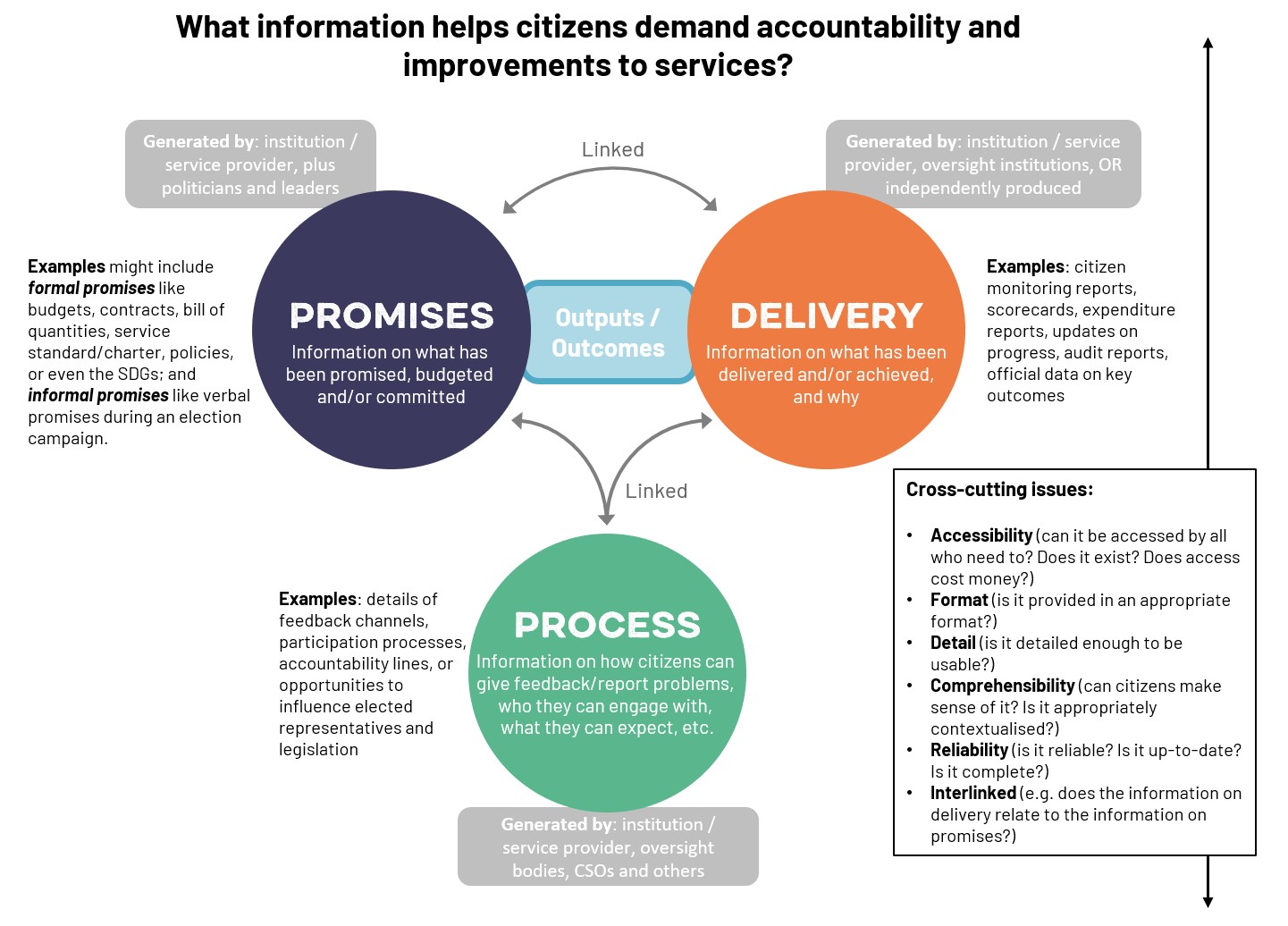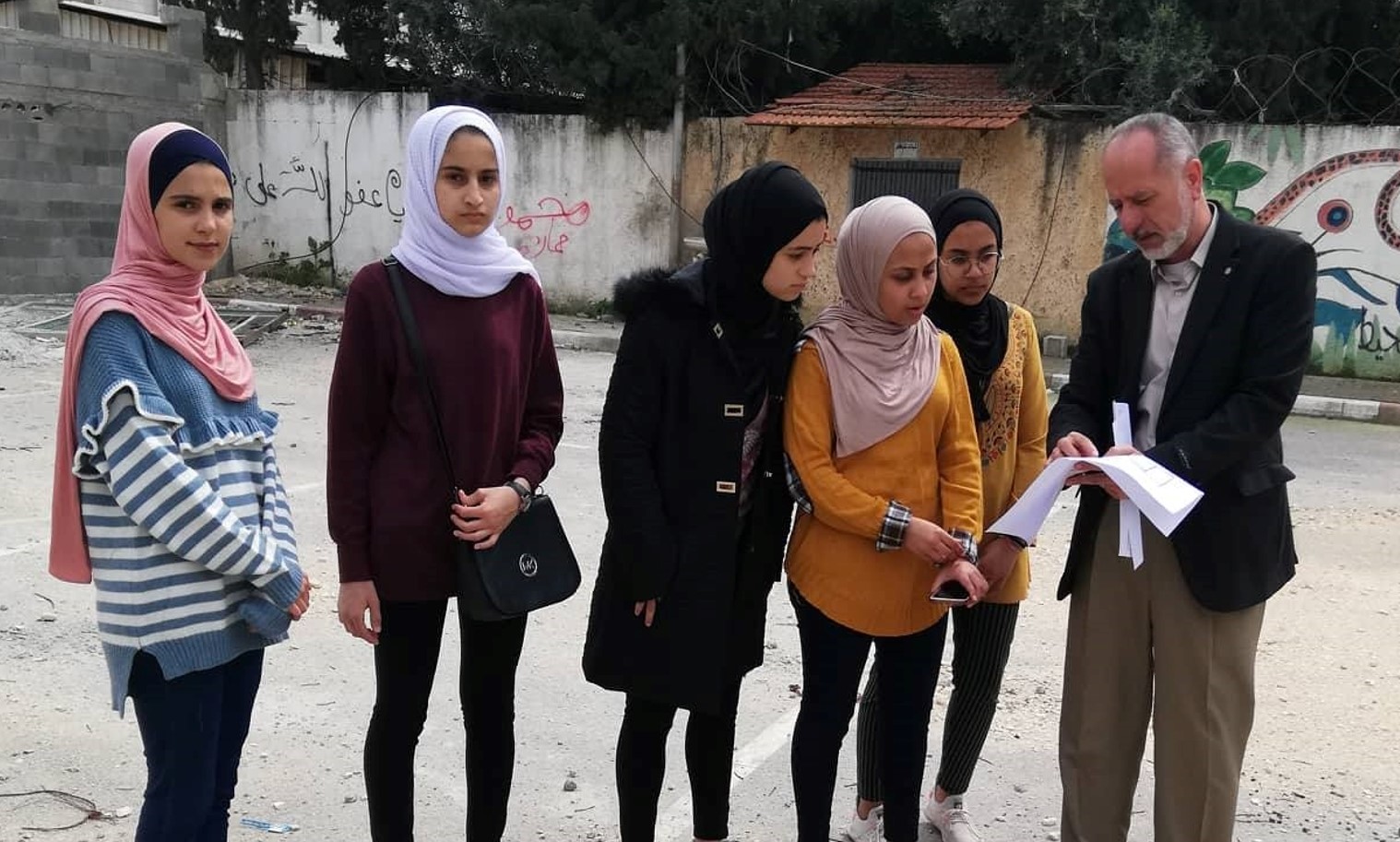What information helps citizens to demand accountability?
This blog introduces a learning paper asking, what information is most helpful for citizens demanding accountability?
Information is power! Right?
As someone working in the field of transparency and accountability, particularly in relation to public service delivery, I am very much on board with this sentiment.
If we interpret “power” as the ability of citizens to hold public services to account and secure improvements to their performance, then information is undoubtedly helpful – while not being sufficient by itself.
In support of that, our recent research report on solving problems in public service delivery suggested that, when citizens identify a problem with a service, they are more likely to get a resolution if they are armed with information about the service in question.
But a key – and in my view, underexplored – question is, what information are we talking about? What kinds of information do citizens need in order to hold institutions to account for the services and entitlements they should be receiving?
That is the subject of the paper we are now sharing. It draws on the aforementioned research, experiences of Integrity Action and its partners, and some external sources.

It proposes that there are three fundamental types of information that citizens would find helpful – and the more types you have, the better. They are, in brief:
- Promises - information on what has been promised, budgeted and/or committed
- Delivery - information on what has been delivered and/or achieved
- Process - information on how citizens can give feedback/report problems, who they can engage with, what they can expect, etc.
The paper also proposes a group of cross-cutting issues that apply to this information. The more these issues are satisfied, the better:
- Accessibility - can it be accessed by anyone who needs to?
- Format - is it provided in an appropriate format?
- Detail - is it precise/detailed enough to be usable?
- Comprehensibility - can citizens make sense of it?
- Reliability - is it reliable?
- Interlinked - e.g. does the information on delivery relate to the information on promises?
The paper also explores the ways in which these information types, and issues, are interlinked; provides information examples; and asks where this information might come from.
We hope this framework might act as a guide to anyone designing or implementing initiatives or policies concerning information and accountability, to ensure the most useful types of information are sought or provided.
The paper presents this learning in a graphical format - building up the picture step-by-step - rather than through text alone. We hope this communicates the ideas more clearly!
As ever, we are happy to hear feedback – please send it to derek.thorne@integrityaction.org, or @dfthorne1 on Twitter.
Many thanks to Tom Aston, Dan Burwood, Gilbert Sendugwa, Ben Taylor and Courtney Tolmie for providing valuable feedback on earlier drafts.


